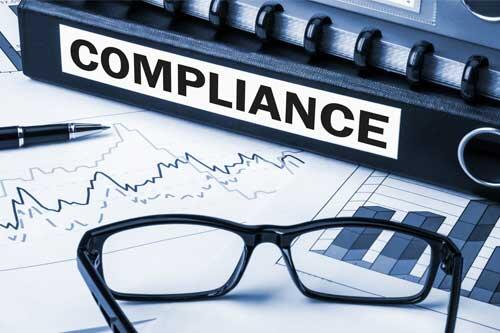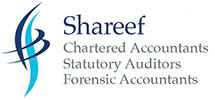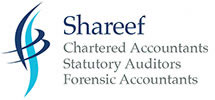
UK Self-assessment taxpayers and partnerships have until 31 January following the end of the tax year to file their return otherwise, they will be liable to an automatic fine of £100 which increases over time until filed.
Companies must file their company tax return (CT600) no later then 12 months from the accounting year end otherwise, they too will be liable to an automatic fine of £100 which also increases over time until filed.
Our experienced team files over a thousand personal and company tax returns annually, having worked with clients for over 26 years. Our professional, tailored service has led to many happy clients so you can be rest assured you are in safe hands.
Preparing and filing incorrect personal or company tax returns and/or filing returns late will result in penalties which is why experienced qualified Chartered Accountants should remove this worry from you, so you can concentrate on your business knowing you are in safe hands.
Personal Tax
Completing and filing an income tax return can be a complicated and worrying business which why our experienced tax team should deal with this for you.
Our team will provide you with the peace of mind to know that your returns are compliant and accurate, thus ensuring that your personal finances are in order.
Our dedicated team can handle all tax returns and compliance matters, including preparing and submission of returns, claims for allowances and reliefs, payment advice and advice on tax planning opportunities.
Our experienced personal tax team strive to offer you tailored, tax efficient solutions to cover all aspects of your personal tax requirements. We provide a personal and proactive approach to meet your needs, whether you require assistance with strategic planning or more simple tax returns. Whatever your personal situation and requirements, our tax advisory team could help improve your financial position.
We will take the time to obtain a thorough understanding of both your present personal circumstances and your long-term objectives and use that knowledge effectively to underpin all areas of our advice.
Partnership Tax and LLP
An LLP is a separate legal business entity with the benefit of limited liability that can be structured like a traditional partnership and for tax purposes is treated for the main as partnerships. We offer a range of tax services, business and personal tax returns, a tailored strategy going forward to minimise tax and the dealing of tax implications surrounding partnership changes.
The tax affairs relating to partnerships and limited liability partnerships (LLPs) are extremely complicated. The matters concerning profit share agreements, ownership of partnership assets and the rules relating to incoming and outgoing partners are particularly complex and we have a wealth of experience in dealing with these important areas.
As for personal tax returns, partnerships have until 31 January following the end of the tax year to file their return otherwise, they will be liable to an automatic fine of £100 which increases over time until filed.
The Partnership Tax Return
The Partnership Tax Return asks for details of the partnership’s income and related information.
Every partnership gets the first 8 pages of the Partnership Tax Return covering income from trades and professions, and interest or alternative finance receipts from banks, building societies or deposit takers. There are other, ‘supplementary’, pages covering the less common types of income, and
disposals of chargeable assets.
As the partner completing the Partnership Tax Return it’s your responsibility to make sure that you fill in the right supplementary pages and file them on time with the rest of the Partnership Tax Return.
Why not leave this to our experienced tax team who are very familiar and experts in dealing with partnership tax returns to ensure it is completed correctly and filed on time to avoid penalties and the stress.
Penalties for failing to file by the deadline
If you fail to file the Partnership Tax Return by the appropriate deadline, HMRC will charge each partner who was a member of the partnership during the return period a £100 penalty
If the delay continues, HMRC will charge each partner the following penalties:
- over 3 months late – a penalty of £10 for each additional day the Partnership Tax Return is late for a maximum of 90 days (£900)
- over 6 months late – a fixed £300 penalty
- over 12 months late – a further fixed £300 penalty
Corporate Tax Compliance and Returns
Our dedicated team can handle all tax returns and compliance matters, including preparing and submission of returns, claims for allowances and reliefs, payment advice and advice on tax planning opportunities.
The management of corporate tax compliance obligations is becoming more complex, and therefore more costly, as the Government introduces new measures each year.
Our highly qualified and experienced specialists tailor our service to your business, no matter how large or small. We provide an inclusive service that can handle every aspect of the compliance process for you to an agreed timetable, from filling in tax forms to finalising your tax, providing tax efficient planning for your business, and even dealing with queries from the authorities.
The company tax return
A Company Tax Return usually has to be delivered no later than 12 months after the end of the accounting period. If the company delivers its Company Tax Return late it may be subject to an initial penalty of £100. As seen below the filing requirements of the Company Tax Return can be onerous.
As part of the company tax return, it must include computations to show how the figures in the Company Tax Return form have been derived from the figures in the company’s accounts. Companies also pay corporation tax on gains that they make which is declared on their company return. All the information you consider necessary to explain the derivation of the figures in the Company Tax Return form should be included within the single iXBRL computations file.
If the company tax return fails to meet the above requirements or is not in iXBRL format the return will fail which will result in penalties. Leaving this to our experienced tax team who are very familiar and experts in dealing with company tax returns to ensure it is completed correctly and filed on time to avoid penalties and the stress.
We will review your business to advise which entity suits your commercial aspirations and also advise how to structure that entity to make it tax efficient. If you want to discover how we can help you save tax then just contact us regarding this. What works best depends on personal circumstances unique to each business and individual. There will never be a “one fits all solution” which is why speaking to Shareef & Co Chartered Accountants before commencing your business is critical and frequently errors cannot later be corrected which will result in higher taxes.
Businesses develope over time, so reviewing the current business structure is important to ensure it meets the Business Asset Disposal Relief criteria and adequate planning is in place to either selling the business or passing it on to the next generation is done in the most tax optimum way.
Charity Tax Returns
Charities are generally exempt from paying corporation tax, but they are required to complete and submit corporation tax returns in two specific circumstances:
- if they have any taxable income or gains not covered by a relief or exemption
- if they have been served with a notice requiring them to file a return
A Corporation tax return includes a set of the charity’s accounts and a computation of the tax due, as well as the return form itself.
Charities completing returns need to complete all parts of the form. The CT600E which is of particular relevance to charities needs to be downloaded and completed in addition to the main return. Charities may also need to complete a Corporation tax computation even though this might show zero throughout, although where total exemption is being claimed and there is no liability for tax, a PDF letter confirming that a computation is not being submitted can be attached instead.
Without all parts of the form completed it may be rejected and the charity could incur a late filing penalty. Our experienced team will assist your organisation in preparing and filing the above in iXBRL format online using our sophisticated IT solutions so you don’t need to worry about meeting your filing requirements.
Charity Gift Aid Returns
We assist our charity clients to claim Gift Aid online by the use of a spreadsheet which must include the following information for each donor;
- title, using a maximum of 4 characters per line
- first name (or first initial) and last name, using a maximum of 35 characters per line
- house name or number
- postcode, using capital letters and include a space, for example, S19 2BD
- aggregated donations if applicable
- sponsored events
- donation date, using the format DD/MM/YY or enter the latest date in a series of donations made by the donor
- donation amount, without using £ signs and showing amounts to 2 decimal places, for example 200.00 not £200
We assist the charity to set internal controls to automate the information in the correct format for seamless transfer to HMRC so you receive the Gift Aid without any delay.
Capital Gains Tax
CGT is a tax on chargeable gains made by individuals, trusts or personal representatives.
Most individuals (excluding non-UK domiciled individuals claiming the remittance basis) qualify for an annual exemption.
This is an amount that can be earned tax free each year. For the year ending 5 April 2022, the Annual Exemption is £12,300. The rate of CGT payable depends on your other income:
| Band | Residential property | Other Gains |
| Up to Income tax basic rate (2021/22: £37,700) | 18% | 10% |
| Above Income tax basic rate | 28% | 20% |
| Trusts | 28% | 20% |
We advise many clients on property taxes and planning opportunities relevant to commercial and residential property, including in the areas of: ownership structures, corporation tax, VAT, capital gains tax, stamp duty land tax and capital allowances.
Inheritance Tax
IHT is charged on the gifting of assets by individuals during their lifetime and at death. A UK domiciliary is taxable on his worldwide assets whereas a non-domiciliary is taxed only on his UK assets. Individuals who have been resident in the UK for 15 tax years are classified as UK domiciled from the beginning of the 16th tax year.
All lifetime transfers are treated as potentially exempt transfers (PETs) unless the transfer is to a trust in which case it is a chargeable transfer.
The rate of tax is 40% on transfers at death and 20% on chargeable lifetime transfer
Exemptions:
- All transfers where the donor survives 7 years from the date of the gift are wholly exempt unless it is a transfer to a trust.
- Transfers up to a value of £325,000 (the nil rate band - NRB) per person are charged at 0%. The amount of any spouse’s unused NRB at death can be claimed by the surviving spouse.
- For estates of less than £2m an additional NRB of £175,000 is available for main residences.
- Annual exemption of £3,000. Unused exemptions can be carried forward one year.
- Small gifts under £250 per recipient.
- Normal expenditure out of income is not treated as a transfer of value. The donor needs to have sufficient retained income to live and maintain their lifestyle. Any gifts out of surplus income must form a regular pattern.
- Gifts in consideration of marriage, depending upon relationship between donor and recipient, between £1,000 and £5,000.
- Transfers to a spouse are wholly exempt unless the donee spouse is not domiciled in the UK in which case the exemption is restricted to £325,000.
- Gifts to registered charities and political parties are wholly exempts.
Reliefs:
There are two key reliefs for IHT, one for Business Property and one for Agricultural Property, both of which give relief at either 50% or 100%.
Business Property Relief (BPR)
50% relief for:
- Shares in a listed company transferred by a controlling shareholder.
- Assets used in a company controlled by the transferor.
100% relief for:
- Shares in an unlisted trading company
- Business carried on by a sole trader
- Interest in a business, e.g. share in a partnership
Agricultural Property Relief (APR)
- 50% relief for Certain tenanted agricultural land where vacant possession cannot be attained within 24 months.
- 100% relief for Agricultural land, except as described above.
We work closely with clients to formulate a long-term inheritance tax planning strategy and provide practical solutions to fit with client’s circumstances and to protect family wealth.
Property Tax
We advise clients on property taxes and planning opportunities relevant to commercial and residential property, including in the areas of ownership structures and tax efficiency, capital gains tax, VAT, stamp duty land tax and capital allowances.
All businesses are affected by property tax one way or another, whether as owners or occupiers, developers or investors or real estate consultants and hotel owners, to mention but a few.
The taxes are complicated whether you are trading in property or merely making an investment and there are significant differences in the way tax is deductible or allowed. We can deal with all matters, including tax relief on capital allowances, which are complex in the extreme, and also advise on buying, selling, letting and VAT and the most appropriate structures to purchase property.
We offer the following tax related services for developers, agencies and landlords;
- Business structures and tax mitigation, including advice on tax efficient joint ownership
- Advice on which structure to use to buy property: sole-trader, partnership, LLP or limited company.
- VAT planning and advice
- Capital allowances and Capital Gains Tax planning
- Estate and Inheritance Tax planning
- Stamp Duty Land Tax



 This website uses both its own and third-party cookies to analyze our services and navigation on our website in order to improve its contents (analytical purposes: measure visits and sources of web traffic). The legal basis is the consent of the user, except in the case of basic cookies, which are essential to navigate this website.
This website uses both its own and third-party cookies to analyze our services and navigation on our website in order to improve its contents (analytical purposes: measure visits and sources of web traffic). The legal basis is the consent of the user, except in the case of basic cookies, which are essential to navigate this website.